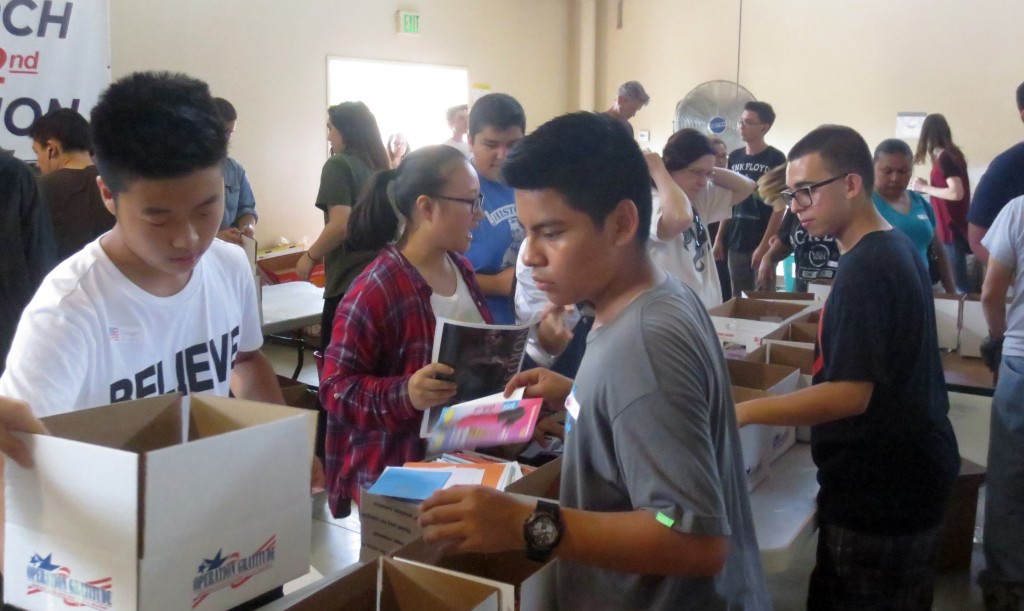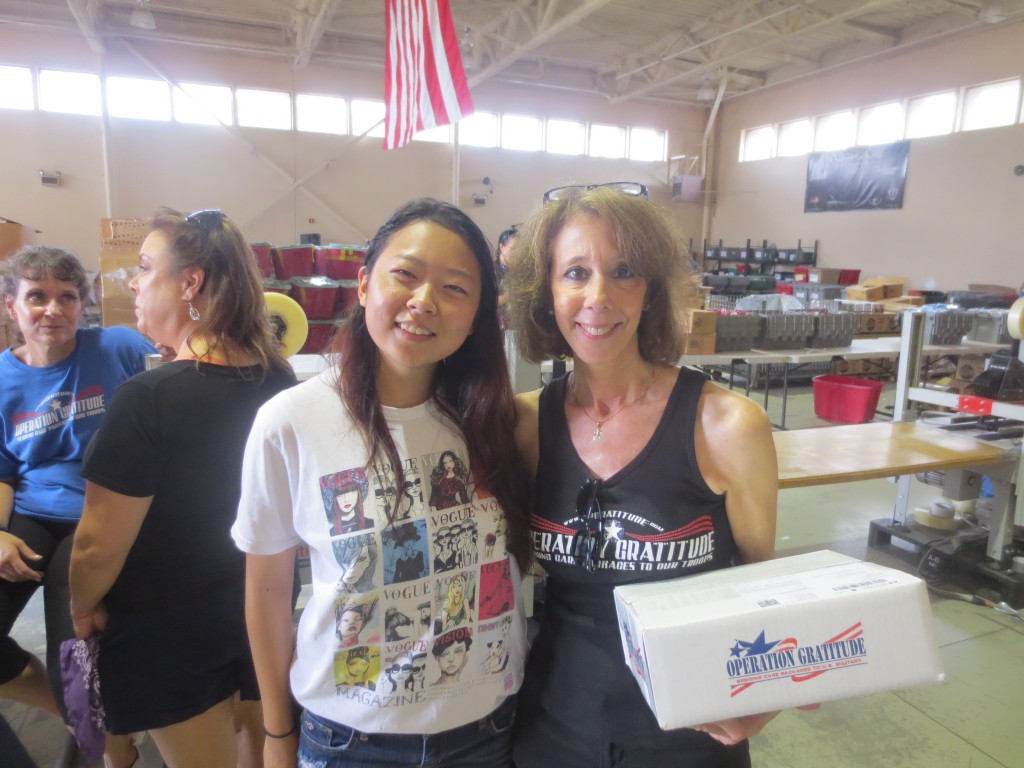The Kitty Hawk Air Society is part of the JROTC and a place where cadets have the chance to blossom into tomorrow’s leaders.
By Mary O’KEEFE
They are seen throughout the community at events like Veteran’s and Memorial Days at Two Strike Park, at the opening of Crescenta Valley Town Council meetings and most recently at the Montrose Christmas Parade. They, Crescenta Valley High School JROTC members, are students and when the public sees them they are usually dressed in perfectly pressed uniforms and are presenting the colors at an event. But often their work for the community, and beyond, goes unnoticed.
CVHS JROTC at its foundation is a leadership program that is mentored by Lt. Col. Dave Worley and Sgt. Billie Smith. It began in 1988 at CVHS by then-aerospace science instructor and U.S. Air Force veteran Sgt. Earl Hintz. It was the second JROTC program established in California. The goal is not to recruit new military personnel but to train new leaders. In fact, the majority of JROTC students at the school do not continue on to a military career but do take what they learn while in the program to their college and vocational future.
Within the JROTC is the Kitty Hawk Air Society, a program that is comparable to an honor society within JROTC.
“We have GPA (grade point average) requirements and for those [who] want to [join] the Kitty Hawk Air Society they have to meet other requirements,” said Hyo Julie Ha, CVHS senior and president of the KHAS.
Other requirements for applicants include memorization of several works including all the lyrics of the U.S. Air Force official song, the preamble to the U.S. Constitution and proper responses to other questions that include a respectful “yes, sir” or “yes, ma’am.”
“[KHAS candidates] are partnered with a [KHAS] member who has been with the program for at least a year,” Ha said. The active member helps guide the candidate through the memorization and helps prepare them for the presentation that is made to the other KHAS members.
“They have to sing the first verse of the Air Force song in front of [KHAS] members and it is put on Facebook. That has become our tradition, Ha said.
KHAS members are kept busy with various projects throughout the year.
“For this year there are three main projects we have going,” Ha said. “We have Operation Gratitude, the Veteran’s History Project and peer mentoring that we just started this year.”
Operation Gratitude is a project that sends over 150,000 care packages of items like snacks, movies, books and other things from home to military service men and women. Ha worked with Operation Gratitude organizers this year and got to experience what those boxes from home mean to military personnel. Operation Gratitude is usually a project worked on during first semester but this year Ha spoke to organizers who would like to extend the project into the second semester.
“[Officials] would like to do a bracelet-making campaign so hopefully we will be doing that next semester,” Ha said.
The KHAS has added a peer-tutoring project to their yearly activities.
“One of our core goals this year is to make certain no cadet fails their classes, so if we see any cadet having trouble we will [reach out] to them or if a cadet needs help they can sign up for [tutoring],” Ha added.
One of the most ambitious projects taken on by the Society is the Veteran’s History Project through the Library of Congress.
“The Veterans History Project of the American Folklife Center collects, preserves and makes accessible the personal accounts of American war veterans so that future generations may hear directly from veterans to better understand the realities of war,” according to the Library of Congress website. The project was started in 2000 by the U.S. Congress. It was sponsored by both Houses and received unanimous support. Firsthand accounts from wars and conflicts throughout the history of the United States have been collected. There is a sense of urgency in collecting some of these interviews as the population of veterans from World War II is dwindling. Ha and the Society have already interviewed veterans and are preparing for more interviews in the future.
Ha recalled interviewing a local Vietnam veteran and not only getting information for the project but learned more about veterans than she thought she would.
“It was incredible listening to [the veteran’s] story,” she said. “These veterans are not who we think they are … for me it was really incredible to [talk to him]. I had only learned about veterans from books or magazines.”
Ha added that both Worley and Smith are veterans; however, they are instructors and she hasn’t had the opportunity to talk to them like this project has allowed her to do.
“I was in charge of creating the pre-interview questions. We met with the veteran before we interviewed him [on camera],” she said. “I now have a broader perspective of what life was like back then … meeting a veteran up close and personal; that is what is different from reading about them in a book.”
The KHAS plan is to continue to interview veterans and send the Library of Congress one video every month.
Ha has been a member of JROTC for four years and a KHAS member for three years. She has learned a lot about leadership and about her fellow cadets.
“As years go by you can see cadets changing,” she said. “I can picture the leaders they will become.”



